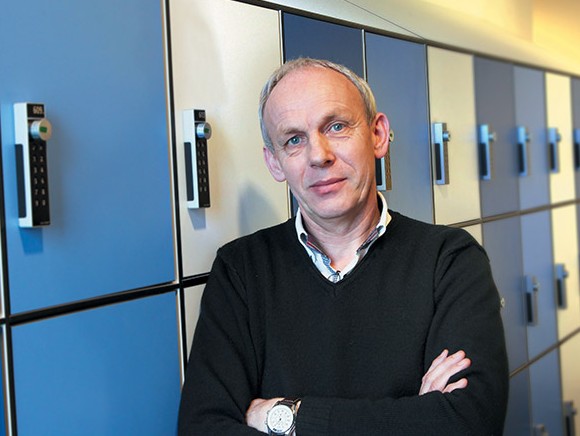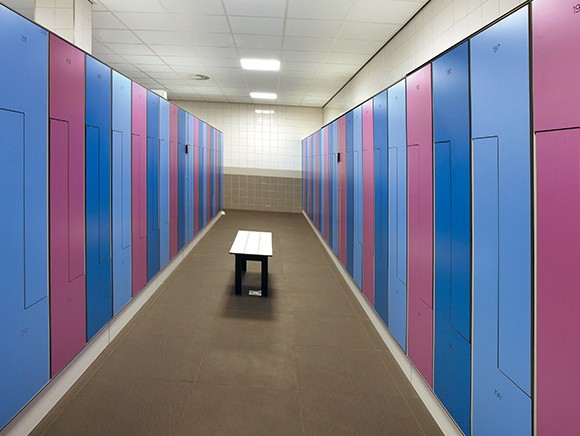
Poultry processor Esbro has been growing strongly since the company’s move to new premises in 2013. At that time, director and owner Joop Eskes ensured that the facilities were based on well-thought-out plans, and not only from an efficiency viewpoint. He considered it equally important for the new building to be a good working environment for his employees because, as he says, “Your people are your assets.”
Eskes, who is proud of the resulting premises, is an entrepreneur who is literally bursting with energy; he takes the stairs to the offices three at a time, pointing out that the building – which stands alongside the motorway – is constructed in a horseshoe shape. The raw materials arrive at one tip of the horseshoe and the products are dispatched from the other tip. He can keep an eye on both from a single point. The company moved a couple of kilometres to the west of its run-down premises in Doetinchem to settle in a brand-new location in the neighbouring municipality of Wehl, bordering the A18 motorway.
Shortly after construction was completed, Esbro became a member of the German PWH Group. “That was a logical step,” says Eskes. “Ever-more companies in the sector are joining forces, either through take-overs or mergers, just as their customers are also growing bigger and working together in buying alliances. And I think that this trend is set to continue. Small companies will increasingly struggle.” When he joined Esbro, his father’s company, in the 1980s it was a small family-run business. His mother even worked in the canteen in the early years. Nowadays, the facility in Wehl processes 230,000 chickens into fillets and other products every day.
Rather than ‘putting all his eggs in one basket’, Eskes targets several different markets and supplies products from organic chickens, chickens with a one-star animal welfare rating and regular chickens. They are sold to countries including Germany, France and the UK as well as the Netherlands. His customers are retailers, wholesalers and foodservice companies including the well-known international fast-food restaurant chains. The company has achieved its biggest growth over the past couple of years. In Doetinchem Esbro handled only 80,000 chickens per day so it was a wise decision to design the new building to cope with growth. Several factors have contributed to that recent growth. The sales figures are strong, partly due to the fact that Esbro has always responded quickly to market changes. In the 1980s that meant switching from frozen to fresh, and subsequently a shift to producing cuts rather than selling whole chickens. Sometimes the company was even a little too quick to change. “We jumped the gun with our Gildehoen sustainable chicken, but at least it resulted in the new chicken concept. And that new concept enabled supermarkets to carry affordable chicken with a ‘Beter Leven’ (Better Life) star for the first time. Another reason our production more than doubled is because of a fire that destroyed one of the German facilities within the PWH Group. That volume was transferred to Esbro.”
The technology used in the new facility is sustainable and ultra modern, including controlled atmosphere stunning (CAS), Aeroscalder feather removal (which uses 75% less water and 50% less energy) and heat recovery. It has not only become an efficient and hygienic company but also offers a good working environment to today’s 300 employees. “They work in clean, air-conditioned areas and that is essential in our industry. But I believe they should also have access to other good-quality amenities.” Therefore, the company includes light and spacious canteens and a fully equipped gym, plus the 400 lockers in the changing areas are made of robust, sustainable material in cheerful colours. When the German production was transferred to Wehl and 100 extra employees had to be drafted in all at once, 100 more lockers had to be installed too. “That was virtually impossible at such short notice but our supplier managed to pull it off somehow – although I still don’t know how!”

For Eskes, that confirmed it has been the right decision to contract Kupan to supply the lockers and the toilet groups. The same company had also supplied the lockers and the toilet groups for the premises in Doetinchem. “The materials used can withstand moisture and disinfection agents, and the attention to the finish is excellent.” But what he appreciated most was the specialist’s problem-solving approach, which became apparent during the construction process. “At that time I was often too busy to keep an eye on all the details, but they did that for me.” Just a few examples include the locker ventilation, the entry-pass system and the design of the toilet groups. “It simply has to be the best, even if I can’t concern myself with it.” And that is definitely the case, including for the lockers for the 100 holiday workers. For them, lockers have been installed that are tailored for youngsters, including space for a helmet, trainers and a smartphone. Reflecting on the current situation, Esker says: “Things are running how I want them now.” But that doesn’t mean he is resting on his laurels; there are already plans in place for new growth, in terms of both value and volume. When asked to explain Esbro’s success, he says: “Innovation, quality, efficiency – and our employees.”
Eskes: ‘What I appreciate most: this specialist takes a problem-solving approach’
Source: © Kupan